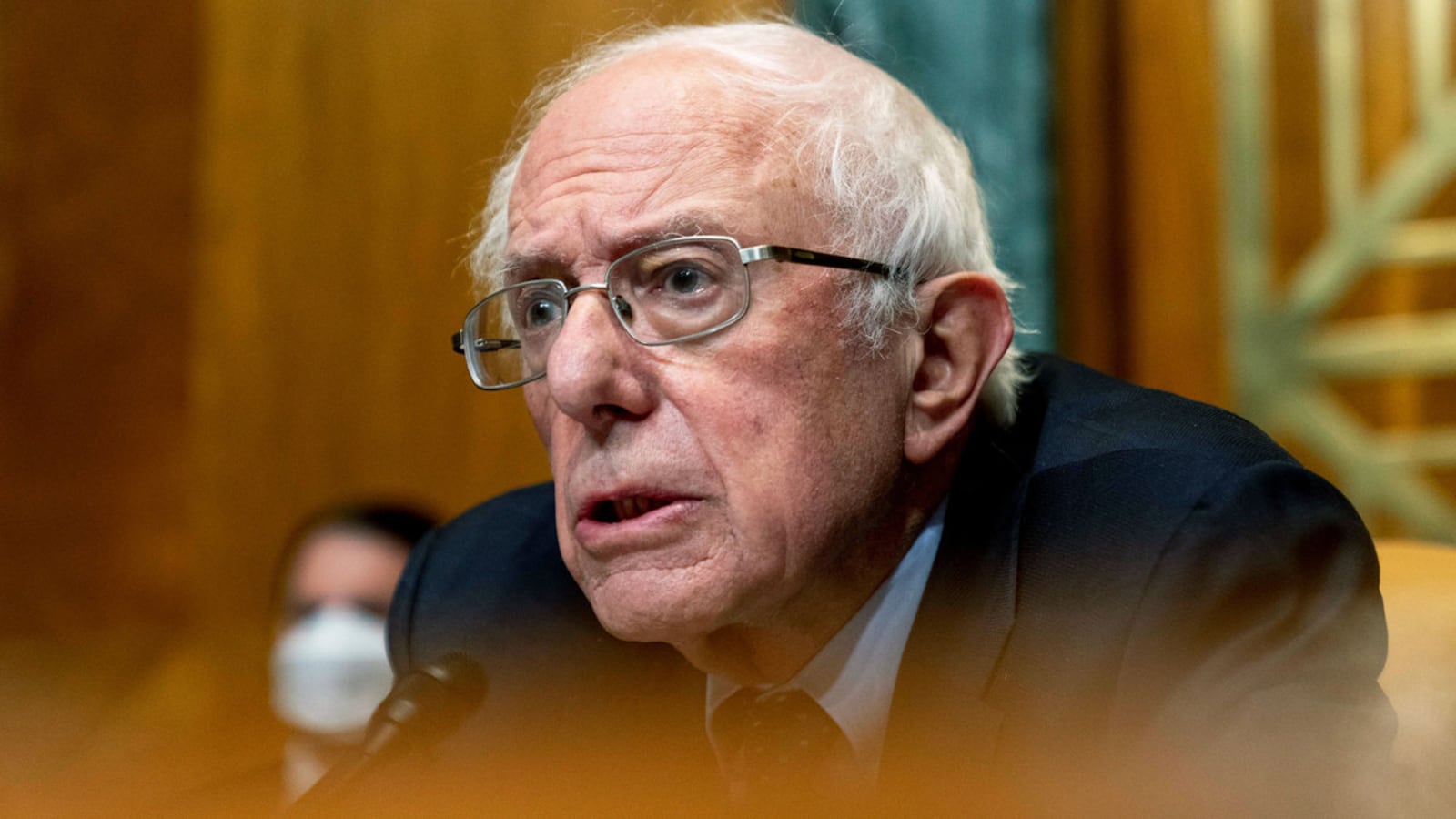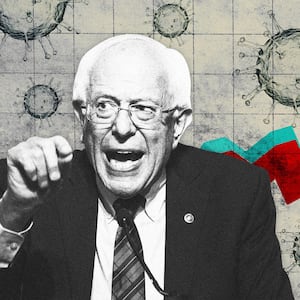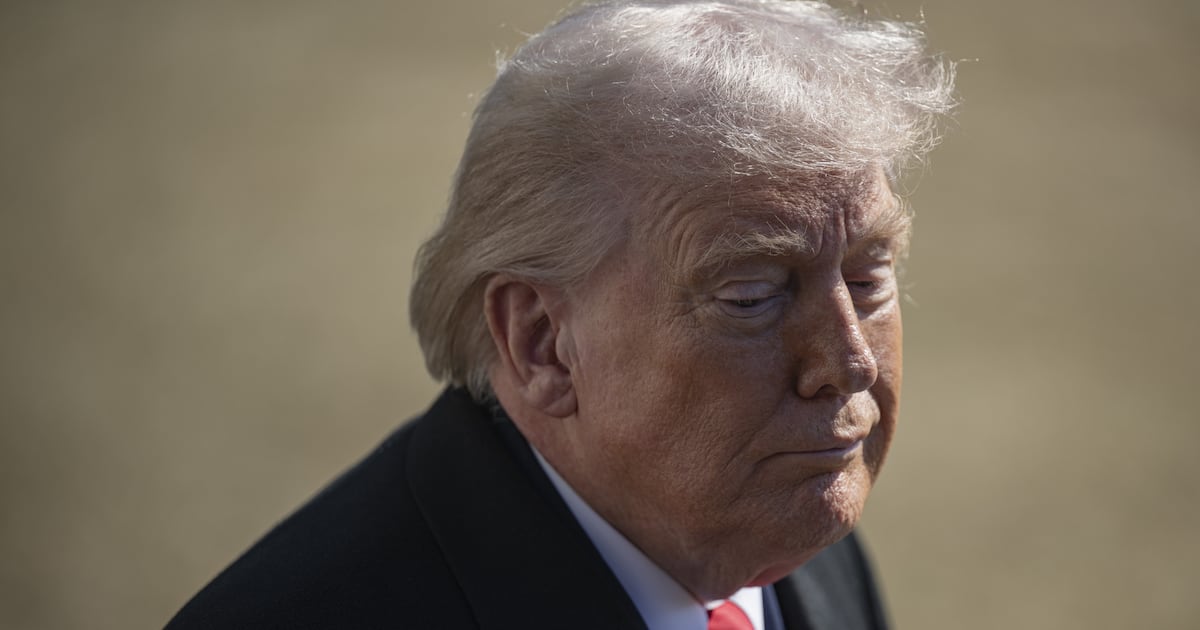Democrats are confronting their first existential crisis as Washington power brokers: how far they are willing to go to keep their minimum wage promise after facing a defeat by the Senate’s rules referee.
Frustration has escalated to anger in some progressive circles, with elected officials and activists becoming increasingly antsy about the prospect of actually passing a chief campaign pledge. Where there was once optimism and urgency around a consensus Democratic issue, the latter emotion has become distinctly more pronounced. For weeks, the chance for a national pay raise dangled amid arcane congressional intrigue.
Some in the party’s left-wing have taken those concerns directly to the Biden administration, which, they say, has been willing to hear them out, including within its highest ranks. But the prolonged uncertainty and public speculation has added a layer of anxiety to the process.
“If you’ll pardon my language, we’re done fucking around,” said a source close to the White House who has been in touch with senior administration officials about the wage discussions. “This is a dealbreaker issue. What we need to see is that the administration is going to the wall with everything it has politically, exhausted all democratic means necessary, to deliver.”
A major avenue was closed off on Thursday night, when the Senate’s independent parliamentarian ruled that the proposal to raise the wage to $15 an hour does not conform to the rules for fast-tracking COVID relief with a simple majority. Many Democrats had expected the outcome, and top officials from the White House to Capitol Hill have signaled they would not try to overrule it.
“Certainly that’s not something we would do,” White House Chief of Staff Ron Klain told MSNBC the night before the revelation. “We’re going to honor the rules of the Senate and work within that system to get this bill passed.”
Sen. Bernie Sanders (I-VT), in a statement, vowed to fight on.
“I will be working with my colleagues in the Senate to move forward with an amendment to take tax deductions away from large, profitable corporations that don’t pay workers at least $15 an hour and provide small businesses with the incentives they need to raise wages,” he said.
The decision may speed up the passage of the COVID relief package, since it jettisons a potentially thorny debate between the party’s moderate and progressive wings about a final wage figure. But for Democrats who viewed the $1.9 trillion legislation as their best opportunity in years to raise the wage, the ruling is a serious setback. It means that any wage hike would be subject to the normal, 60-vote threshold required to make laws in the Senate.
Publicly, top Democrats vowed to press onward. “We are deeply disappointed in this decision,” said Senate Majority Leader Chuck Schumer (D-NY) in a statement Thursday night. “We are not going to give up the fight to raise the minimum wage to $15 to help millions of struggling American workers and their families. The American people deserve it, and we are committed to making it a reality.”
In recent weeks, party officials and lawmakers had already been warning that any Democratic failure to capitalize on this moment would have disastrous political ramifications and erode their credibility with voters.
“We can't just go out there and promise people things and then not deliver,” said Rep. Pramila Jayapal (D-WA), the chair of the Congressional Progressive Caucus, who has been a staunch advocate of the $15 proposal and nothing less. “In two years if we go out and tell people why we didn't pass the minimum wage, saying ‘the parliamentarian wouldn't let us do it’ is really not going to cut it,” she told The Daily Beast on Thursday, shortly before the news became public.
The outcome immediately adds more heat to the tense Democratic debate over whether to eliminate the 60-vote Senate threshold for legislation, known as the filibuster, in order to pass the wage hike and other key policies Biden has championed. Jayapal laid out the calculus for those dead-set on raising the wage: “we either have to be willing to overrule the parliamentarian because it is an advisory opinion … or, we're gonna have to be willing to reform the filibuster.”
But even if the wage proposal would have been ruled in-bounds, the party would have faced a bigger obstacle than parliamentary procedure: the simple fact that not all Senate Democrats support the $15 figure.
Centrist Sen. Joe Manchin (D-WV), for example, is opposed, and has countered by offering an $11 per hour minimum. In the evenly-split Senate, Democrats have no margin for error to pass the legislation, and recruiting 10 Republicans to any progressive policy item will be a tall task.
The House’s version of the COVID bill, which is expected to pass as soon as Friday, will include a $15 minimum wage—a benchmark in itself that progressives fought hard to achieve and have been publicly and privately cheering.
Before the parliamentarian’s ruling was announced, Rep. John Yarmuth (D-KY), chair of the House Budget Committee, said he expected a standalone vote on the $15 minimum wage should it be tossed out of the COVID bill—“which I don’t know if we can pass.”
Both in Congress and off Capitol Hill, there has been an aggressive campaign from conservatives to counter Democrats’ position. Sens. Mitt Romney (R-UT) and Tom Cotton (R-AR) sought to present the idea of a $10 minimum wage by 2025 as a compromise, a proposal that many progressives deemed inadequate—especially considering their plan would exclude undocumented workers. The prevailing public sentiment among progressive officeholders is that under a Democratically-controlled Washington, there’s no reason to settle for less than the previously agreed-to dollar amount. The federal minimum wage is currently $7.25 an hour.
The Employment Policies Institute, a think tank that has long opposed wage hikes and is linked to the restaurant industry, took out a large ad in the Wall Street Journal on Thursday, targeting Sanders by name, who is leading the effort in the Senate. “BREAKFAST, LUNCH, DINNER, CLOSED DUE TO $15 MINIMUM WAGE,” the ad read, which depicts a fake doomsday billboard.
“This is the right moment to push with all of our might,” said the source in touch with senior White House officials, before the ruling. “If they choose not to, in addition to the disappointment we’ll express, we’ll immediately move to organizing over the next three to six months to get them to do it in another way,” referencing a plan B that would involve building momentum around a standalone bill. The White House did not immediately respond to a request for comment.
The Daily Beast reported earlier this week that dozens of Sanders-aligned activists recently held a private virtual meeting to discuss their strategy. While enthusiasm was generally high on the call, speakers remained realistic that GOP and more conservative-leaning Democratic senators may bludgeon their efforts down the road. “It might be a little unsettling to say, but it’s the reality,” one speaker said. “Here we are, having slogged through the mud, and we have less than a 50-50 chance of raising the minimum wage.”
The meeting came just after fast food workers from over a dozen cities striked. In Milwaukee, where Biden held his first town hall as president, some attendees came equipped with signs that read, “$15 is COVID Relief.” Sanders, who has been working with the administration on a number of issues, expressed public support for their work.
To date, progressives have been pleasantly surprised by Biden’s commitment to the minimum wage. Now stymied by Senate rules, they are calling on the president to expend whatever political capital is necessary in order to raise it.
Asked if she believed Biden was ready to lay it all on the line for $15, Jayapal replied, “he’s been bold coming out and saying he wants it. We just have to help him.”
“We're gonna be the wind behind his sails, we're gonna continue to push, and be clear,” said Jayapal. “There were millions of black, brown, indigenous, poor and working class people who turned out in Georgia and Arizona across the country to elect him and to elect Democrats in the House in the Senate, and this is what they expect.”








